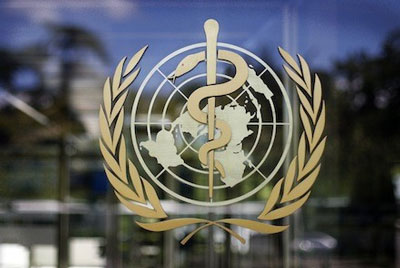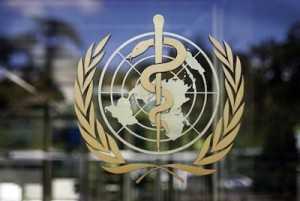The 68th World Health Assembly opens in Geneva
Posted: 19 May 2015 |
Angela Merkel addressed delegates on the first morning of the Health Assembly, calling for a new plan to deal with “catastrophes” like the Ebola outbreak…


The 68th World Health Assembly opened in Geneva yesterday.


Angela Merkel, Chancellor of the Federal Republic of Germany, addressed delegates on the first morning of the Health Assembly. “The WHO is the only international organisation that has universal political legitimacy on global health issues,” she said.
Chancellor Merkel called for a new plan to deal with “catastrophes” like the recent Ebola outbreak. The outbreak highlighted the critical need for urgent, collaborative action in emergencies, and the importance of having efficient structures in place.
Chancellor Merkel pledged that under Germany’s presidency, the G7 would focus on fighting antimicrobial resistance and neglected tropical diseases. She emphasised the need for all countries to have strong health systems and highlighted the key role of health in sustainable development.
New WHO programme for health emergencies announced at the World Health Assembly
In the afternoon, WHO Director-General Dr Margaret Chan outlined her plans to create a single new WHO programme for health emergencies, uniting outbreak and emergency resources across the 3 levels of the Organisation.
“I have heard what the world expects from WHO,” said Dr Chan. “And we will deliver.”
The new programme will be accountable to the Director-General, and will have its own business rules and operational platforms. It will have clear performance metrics, built on partnerships with other responders. It will set up a new global health emergency workforce, as well as strengthening its own core and surge capacity of trained emergency response staff. WHO is calling for a new $100 million contingency fund. The Director-General plans to complete these changes by the end of the year.
Dr Chan reiterated Chancellor Merkel’s points about the importance of building resilient health systems and defeating antimicrobial resistance, citing the “spectre of a post-antibiotic era in which common infections will once again kill,” and urging delegates to adopt the draft global action plan on antimicrobial resistance on this year’s Health Assembly agenda.”
She also noted the need to ensure that the International Health Regulations, the world’s legal instruments for outbreak preparedness and response, are effective. She urged delegates to ready themselves for the post-2015 development agenda and to ensure that health receives the attention, and the resources it needs.
Dr Chan also encouraged Member States to align in preparation for the Climate Conference in Paris at the end of the year, pointing out that health had remained on the side lines of this critical issue for too long.
World Health Assembly elected Dr Shri Jagat Prakash Nadda as its new President
Earlier in the day, the World Health Assembly elected Dr Shri Jagat Prakash Nadda of India as its new President. Five vice-presidents were also appointed from Afghanistan, Barbados, China, San Marino, and Senegal, representing their respective regions. Addressing the World Health Assembly, Dr Nadda announced a number of contributions to WHO from India, including a donation to the WHO contingency fund.
More than 3000 delegates from WHO’s 194 Member States – including a large proportion of the world’s health ministers – are expected to attend the Health Assembly, which ends on 26 May. They will discuss resolutions and decision points on a number of topics including antimicrobial resistance, Ebola, epilepsy, malaria and nutrition.
Delegates will be asked to approve the WHO’s planned budget and programme of work for 2016-2017.




